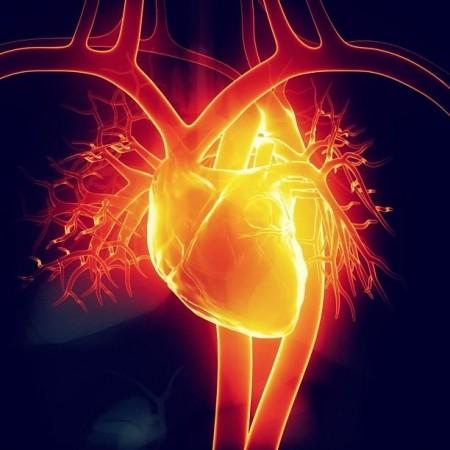A new study by the World Health Organization (WHO) has stated that every two seconds, someone under the age of 70 dies of a Non-communicable disease (NCD) somewhere in the world. Painting an equally stark picture for India, a data portal launched along with the report revealed that NCDs are responsible for 66 percent of all deaths in the country.
Titled Invisible numbers: the true extent of non-communicable diseases and what to do about them, the report has shown that NCDs such as heart diseases, cancers, and diabetes, among others, contribute to 17 million premature deaths every year. The NCD Data Portal introduced alongside the report said that 60.46 lakh people died from NCDs in India in 2019.
Highlighting the need to address this global danger, Dr, Tedros Adhanom Ghebreyesus, Director-General of WHO, said in the report's foreword: "This report is a reminder of the true scale of the threat posed by NCDs and their risk factors. There are cost-effective and globally applicable NCD interventions that every country, no matter its income level, can and should be using and benefitting from – saving lives and saving money."
What are NCDs?

NCDs are diseases that cannot be transmitted from one person to another directly. They include illnesses such as asthma, autoimmune diseases, Alzheimer's disease, cardiovascular diseases (CVDs), cancers, chronic kidney disease, diabetes, Parkinson's disease, and osteoporosis, among others. While these diseases are generally associated with the elderly, individuals of any age can be affected by them.
Unlike most communicable diseases that are a result of acute infections, NCDs are long-term health complications arising due to other factors. They include lifestyle, genetic predisposition, and environmental factors, among others. According to the WHO, the incidence of NCDs has been impelled by four crucial risk factors: unhealthy diets, physical inactivity, tobacco use, and abuse of alcohol.
India's NCD Problem
According to the new report, NCDs are the cause of 17 million deaths annually before the age of 70 years due to NCDs—at the rate of one death every two seconds. The study stated that 86 percent of these causalities are from low- and middle-income countries (LMICs).

What about India? The report only addressed the role of NCD-led death globally. However, the NCD Data Portal provided country-specific numbers. The figures associated with India were alarming: 66 percent (60,46,960) of all deaths in 2019 were attributed to NCDs.
Men—67 percent—accounted for a significant number of NCD-related deaths. Even among casualties below 70 years of age in India, males accounted for 57 percent. CVDs contributed to 28 percent of all deaths. Chronic respiratory diseases and cancers resulted in 12 percent and 10 percent of all NCD-caused deaths, respectively.
These percentages translate to 25.66 lakh death from CVDs, 11.46 lakh deaths from chronic respiratory diseases, and 9.20 lakh deaths from cancer, in India. Importantly, the probability of premature mortality from NCD stood at 22 percent.
The Way Forward

The report noted that a substantial number of deaths caused by NCDs can be prevented with timely intervention. For example, 86 percent of deaths caused by heart diseases could have been delayed or prevented through the elimination of risks to health through prevention and treatment. Similarly, 44 deaths caused by cancer could have been delayed or prevented or delayed by eliminating risks to health
Stressing the need for governments across to take cognizance of the issue and take action, Dr. Tedros added: "This report contains the data and the evidence-based interventions that countries must have to act, through legislation, regulation and mobilizing resources.
















